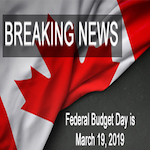Last updated: March 04 2019
Stay Abreast of Looming Provincial Budget Changes

British Columbia was the first province to release its budget this year, when they announced it on February 19. There were some interesting new benefits in the package that advisors must factor into their tax and financial strategies with clients who are B.C residents at the end of 2019.
What’s the status of the provincial budgets? British Columbia’s 2019 Budget was released one full month ahead of the federal budget date, and was the first to come from the provinces and territories. Highlights include:
- New B.C. Child Opportunity Benefit – This replaces the Early Childhood Tax Benefit to make it more accessible to families, and increases monthly benefit amounts for many. It can be applied for beginning October 2020. This new benefit covers all children under 18 (the old benefit applied to children six and under). A family with income of $25,000 or less will receive a refundable tax credit of $1,600 for a first child, $1,000 for a second child and $800 for each subsequent child. Those dollar figures decrease as family income rises. Families earning $114,500 or more with two children will get no benefit; and families making $97,500 with one child receive nothing. These changes were made to align more closely with federal benefit amounts.
- Interest-free student loans – Effective immediately, the provincial portion of student loans will be interest-free. This will save borrowers an estimated $2,300 over the 10-year repayment period.
- Increase to income assistance and disability rates - A single, employable person on income assistance will now be eligible for $760 per month. A person with disabilities will now receive $1,183 per month. This is an increase of $50 per month.
- Clean B.C. rebates - The province committed $900 million over the next three years to fund the rebates and incentives in the Clean B.C. program, including rebates of up to $6,000 on new zero-emission vehicles, $14,000 for home improvements to improve energy efficiency, and $700 for high-efficiency natural gas furnaces. Clean B.C. is the provincial plan to reduce B.C.’s greenhouse gas emissions to 40 percent below 2007 levels by 2030.
Stay tuned to Knowledge Bureau Report for further details on the federal and provincial budgets. And make sure you take advantage of a key resource: learn how to unpack the details and apply them to your practice by enrolling in the Spring CE Summit workshops. These in-person workshops are visiting Winnipeg, Calgary, Vancouver and Toronto in May and June of 2019.
At these workshops, you’ll lea rn how to better interpret the 2019 budget reforms, as well as how to assess their effects and implement tax-effective strategies for your clients. Also, get an increased understanding of the role the U.S. tax reforms play in wealth management and investment decisions you will make with your Canadian-resident clients (including U.S. citizens living here). Finally, join us in a lively, interactive discussion about being more proactive, professional and confident in your relationship with CRA.
rn how to better interpret the 2019 budget reforms, as well as how to assess their effects and implement tax-effective strategies for your clients. Also, get an increased understanding of the role the U.S. tax reforms play in wealth management and investment decisions you will make with your Canadian-resident clients (including U.S. citizens living here). Finally, join us in a lively, interactive discussion about being more proactive, professional and confident in your relationship with CRA.
Additional educational resources: Advanced Tax Filing and Planning certificate course.
COPYRIGHT OWNED BY KNOWLEDGE BUREAU INC., 2019.
UNAUTHORIZED REPRODUCTION, IN WHOLE OR IN PART, IS PROHIBITED.





